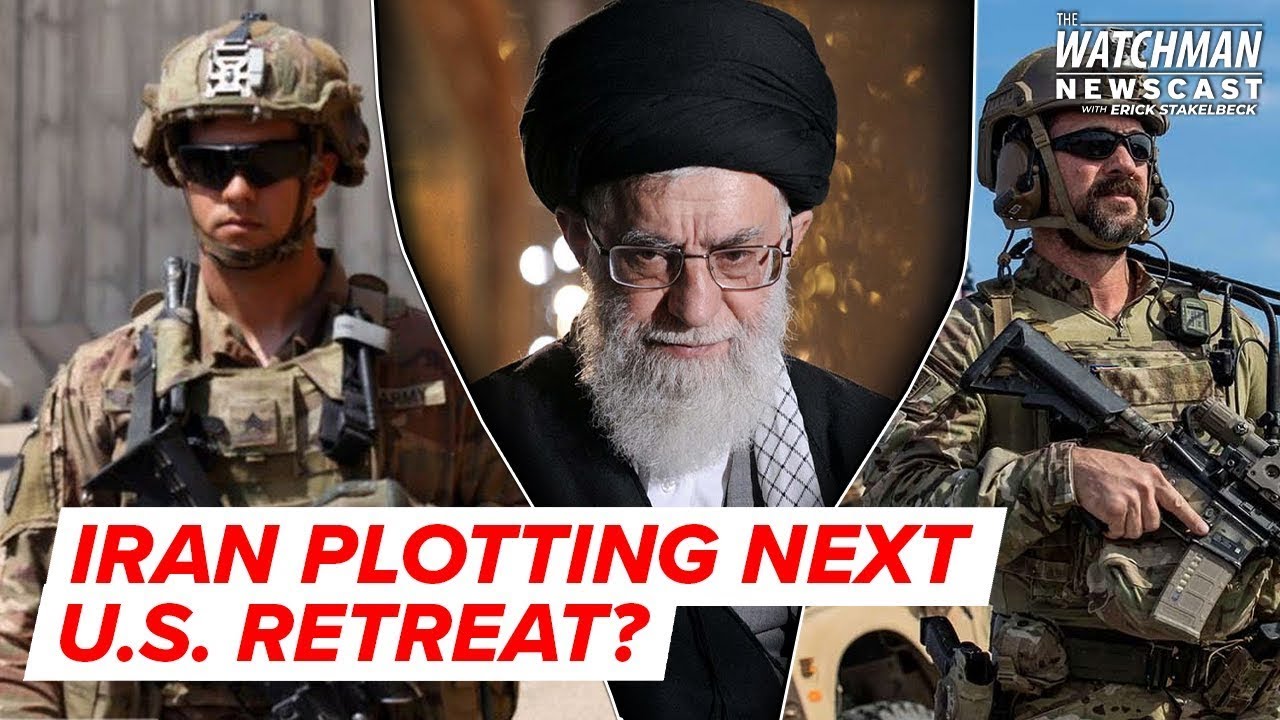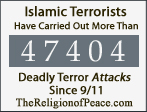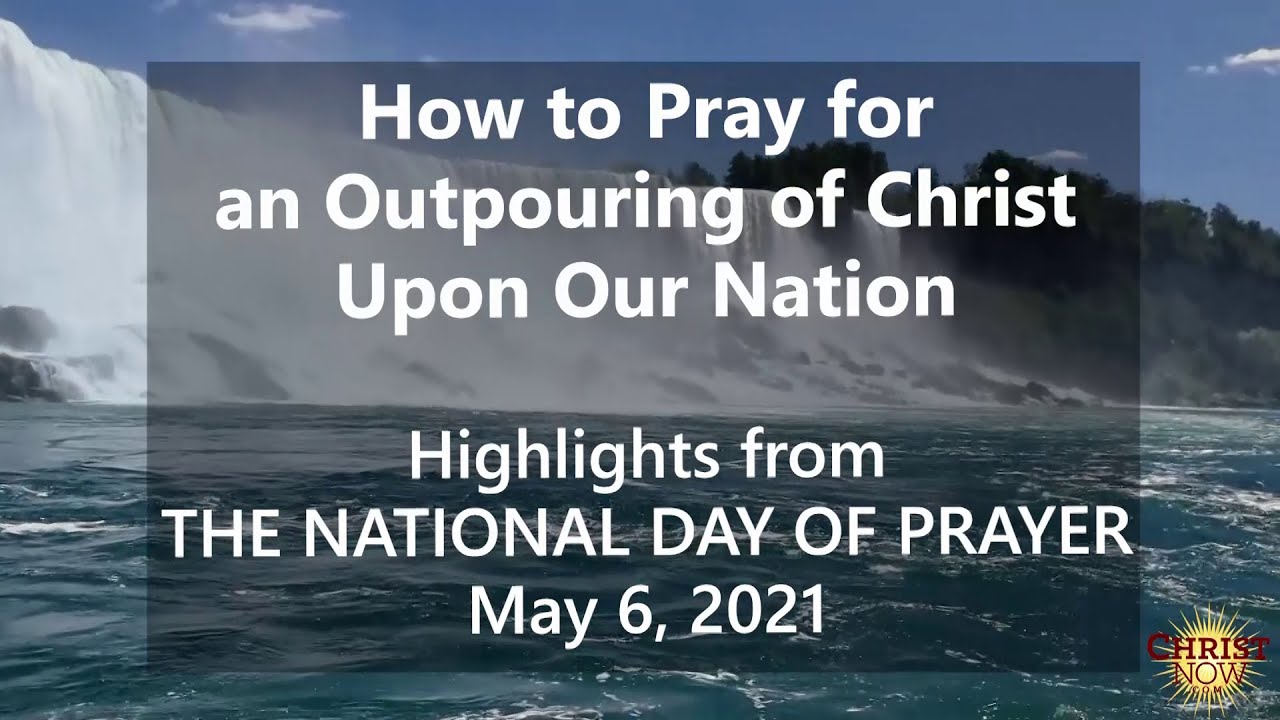Forty Years of Misunderstanding Islam
gellerreport.com/2021/08/40-years-of misunderstanding-islam.html/
This is the whole of it. Denial of Islamic reality. Twenty years of Islamic supremacists, leftist apologists and dissemblers, and their running dogs in the media and academia denying the reality of jihadic doctrine, Islamic apartheid, etc led to this terrible moment.
Not a week after 9/11, George W. Bush assembled representatives from America’s worst terror tied groupsto declare Islam is a religion of peace. at DC mosque, including Dr. Yahya Basha, president of the American Muslim Council, an organization whose leaders have repeatedly called Hamas “freedom fighters.” Also in attendance was Salam Al-Marayati, executive director of the Muslim Public Affairs Council, who on the afternoon of September 11 told a Los Angeles public radio audience that “we should put the State of Israel on the suspect list.” And sitting right next to President Bush was Muzammil Siddiqi, president of the Islamic Society of North America, who last fall told a Washington crowd chanting pro-Hezbollah slogans, “America has to learn if you remain on the side of injustice, the wrath of God will come.”
CAIR founder Nihad Awad, who appeared with Bush at the Washington Islamic Center, has argued that “[t]here is ample evidence indicating that both the Mossad and the Egyptian Intelligence played a role in the [1993 World Trade Center] explosion.” Awad rejects Israel’s right to exist and said that Israel and Egypt played a part in the 1993 World Trade Center bombing
Imagine, our dead were still rotting on the streets of NY, DC and Pennsylvania, and the President were meeting at a mosque to declare Islam is peace.
Quick note: Tech giants are shutting us down. You know this. Twitter, LinkedIn, Google Adsense, Pinterest permanently banned us. Facebook, Google search et al have shadow-banned, suspended and deleted us from your news feeds. They are disappearing us. But we are here. We will not waver. We will not tire. We will not falter, and we will not fail. Freedom will prevail.
Subscribe to Geller Report newsletter here — it’s free and it’s critical NOW when informed decision making and opinion is essential to America’s survival. Share our posts on your social channels and with your email contacts. Fight the great fight.
Follow me on Gettr. I am there, click here. It’s open and free.
Remember, YOU make the work possible. If you can, please contribute to Geller Report.
CSPAN: He urged Americans to be tolerant of peace-loving minorities as America prepared to retaliate for the attacks.
What followed was 20 years of hell and islamic terror – blaming the victims of Islamic terror (Israel, Christians, Jews, free thinkers etc), targeting those of us who opposed jihad terror and sharia and destroying their reputations and body of work, and worst of all, imposing sharia restrictions on speech on the West.
Forty Years of Misunderstanding Islam
By: Bruce Thornton, FPM, Aug 26, 2021:
The debacle in Afghanistan is first and foremost the consequence of the Biden foreign policy team’s spectacular incompetence. Setting a date-certain withdrawal was in itself a blunder, signaling the Taliban that all they had to do was to keep telling us what we wanted to hear and then wait, but withdrawing troops and abandoning Bagram airbase before evacuating our citizens was willful stupidity. It left the Afghan army vulnerable, and ceded the skies to the enemy. So too was leaving behind billions in advanced armaments for the Taliban. There’s no question that Biden’s name will forever be linked to one of the worst military blunders in the postwar period.
But an older error set the stage for bad decisions that have empowered modern jihadism for forty years––the failure to understand the true nature of Islam as documented in 1400 years of practice and doctrine. As a result, we have pursued policies based on delusion and false paradigms.
The first mistake was our misreading of the 1978-79 Iranian Revolution and the kidnapping of our embassy staff in November 1979. Jimmy Carter’s feckless response followed the stale narrative of anti-colonial resistance to our Cold War self-interested disregard for aspirations to national self-determination, political freedom, and human rights. Our ally the Shah of Iran, despite Iran’s geostrategic and economic importance, fell victim to Carter’s naïve belief that “moral principles” and “idealism” were more significant than military readiness and a realist willingness to use force to protect our national interests and allies. Misled by that paradigm, Carter withheld support from the Shah, assuming that a secular coalition would replace him.
Locked in the paradigm of neo-imperialist resistance to movements of nationalist self-determination, Carter failed to understand the true origins of the Iranian Revolution. In reality, the revolution was a religious phenomenon, a response to the Shah’s modernization and secularization policies such as emancipating women and protecting minorities like Jews and Baha’is. The Ayatollah Khomeini, godfather of the revolution, made this motive clear in 1963 when he said the Shah’s regime was “fundamentally opposed to Islam itself and the existence of a religious class.”
Missing too from Carter’s thinking was the historical role of jihad in Islamic reform movements. Khomeini’s sermons and books, the latter dismissed by our security agencies, were clear on the religious obligation to create a political-social order based on Islam and Sharia law. And the means for achieving it was jihadist violence and martyrdom. After he took power in Iran, Khomeini articulated the violent nature of jihad: “Islam is a religion of blood for the infidels but a religion of guidance for other people.” And its goal is the global triumph of Islam: “We shall export our revolution to the whole world. Until the cry ‘There is no god but Allah’ resounds over the whole world, there will be jihad.” Such statements are consistent with Koranic verses such as “Slay the idolators wherever you find them,” or “Fight those who do not believe in Allah,” or “O you who believe! Fight those of the unbelievers who are near to you and let them find in you hardness,” or “Kill them wherever you find them.”
None of this historically venerable doctrine seemed to have penetrated the minds of our foreign policy experts. National self-determination and reforms to institute governments based on Western principles–– human rights, separation of church and state, confessional tolerance, and equal rights for women––became the goal of our involvement in the Muslim Middle East.
This belief became stronger and adopted a missionary zeal after the collapse of the Soviet Union, which was interpreted as a victory for the Western “rules based international order,” global free trade, liberal democracy, and human rights, all of which were presumed to be desired by all the world’s diverse peoples and cultures. This “new world order,” as George H.W. Bush called it, met its answer in the jihadist attacks on September 11, 2001, which culminated a decade of unanswered al Qaeda attacks on our military assets and personnel abroad.
George Bush Jr. responded by likewise promoting universal liberal democracy as the answer to the persistence of jihadism: “The United States must defend liberty and justice because these principles are right and true for all people everywhere. . . . America must stand firmly for the nonnegotiable demands of human dignity: the rule of law; limits on the absolute power of the state; free speech; freedom of worship; equal justice; respect for women; religious and ethnic tolerance; and respect for private property,” as he wrote in the National Security Strategy in 2002. In his second Inaugural speech, he reiterated this Wilsonian idealism, linking it to national security: “The survival of liberty in our land increasingly depends on the success of liberty in other lands. The best hope for peace in our world is the expansion of freedom in all the world.”
These naïve generalizations ignored or whitewashed the essential nature of Islam as seen in 14 centuries of doctrine and practice. The late-14th century writer Ibn Khaldun, one of the greatest Islamic historians and philosophers, wrote in the Muqaddimah, “In the Muslim community, the holy war is a religious duty, because of the universalism of the Muslim mission and the obligation to convert everybody to Islam either by persuasion or by force.” When we see Muslim groups like the Taliban, al Qaeda, the Islamic State, the mullahs of Iran, and others killing and dying in fealty to this traditional religious imperative, it is dangerous blindness for Western secularists to claim that there is no connection between Islam and jihadist terrorism.
Yet that’s what we’ve been doing going back to the Clinton administration, when his Secretary of State Madeleine Albright called Islam “a faith that honors consultation, cherishes peace, and has as one of its fundamental principles the inherent equality of all who embrace it.” Ask the frightened women of Afghanistan, desperate to escape the Taliban’s Sharia-based brutal practices, about the notions of “inherent equality.” Bill Clinton took the same tack when he praised Islam’s “deepest yearning of all––to live in peace,” a claim refuted by 14 centuries of Islamic invasion, occupation, plunder, and enslavement, all justified by the Koran, Hadiths, and Muslim jurisprudents and philosophers like Ibn Khaldun.
George W. Bush likewise indulged such ahistorical apologetics: Islam’s “teachings,” he proclaimed, “are good and peaceful, and those who commit evil in the name of Allah, blaspheme the name of Allah.” But what we call “evil” to pious Muslims like Khomeini or Osama bin Laden or the Taliban are sacred duties to fulfill the will of Allah that the whole world embrace Islam, the one true religion. It bespeaks Western arrogance to tell pious Muslims what their scriptures really mean.
With such a depth of historical ignorance, no wonder that Bush’s attempts to create a liberal democracy, with Western notions of individual rights, found Afghanistan barren soil; or that Barack Obama and now Joe Biden are anxious to cut a deal with a members of a faith that historically has seen such negotiations and treaties with infidels as temporary expedients to be violated or discarded when they have achieved their aim as commanded by Mohammed: to wage jihad “until the cry ‘There is no god but Allah’ resounds over the whole world.”
This feckless failure of imagination, this inability to see a different culture and faith in its own terms, rather than reshaping them by imposing our own, is an important factor in the disaster in Afghanistan: thousands of Americans now virtual hostages, billions in armaments in the hands of a sworn enemy, American prestige damaged for the benefit of Iran, Russia, and China, and NATO allies snubbed. And don’t forget the thousands of Afghans, many of whom wanted to reform their faith and reconcile it with modernity, but are now the targets of heinous retribution.
Understanding the truth of traditional Islam is not a condemnation of every one of the 1.6 billion Muslims. Millions and millions of them have no doubt managed to remain faithful without endorsing the sacralized violence of Islamic doctrine and practice. But we don’t know what proportion of the ummah, the global Muslim community, falls into that category. Our government’s primary responsibility is to protect our citizens’ security and interests, and that means our focus must remain on the Muslim traditionalists who are very clear about those beliefs that our leaders have been marginalizing as the a “hijacking” of the faith, or the “heresies” of a renegade minority.
After 20 years of failure in Afghanistan, perhaps it’s time to listen to what the jihadists tell us about their faith-based hostility and ambitions. Maybe then we can avoid the misguided idealism that has endangered our security and interests, and condemned thousands of Muslim reformers to a gruesome fate.
gellerreport.com/2021/08/40-years-of misunderstanding-islam.html/
BASICS OF CHRISTIANITY – PART VI
BASICS OF CHRISTIANITY – PART VI
The Bible says, “This is the confidence we have in approaching God: that if we ask anything according to His will, He hears us” (1 John 5:14). Even if God doesn’t seem to answer your prayers at first, don’t stop praying. He loves you, and no prayer goes unanswered. Sometimes, God answers our prayers when we don’t realize it; He might answer “No,” or “Wait.” Yes, we think we know what’s best for us, but God sees the whole picture, and sometimes He lovingly refuses to give us what we request because He knows it isn’t according to His perfect plan.
We should also pray for others—even our enemies—as well as our leaders. When we pray for them, we should have faith that our prayers will be answered, but at the same time, remember to seek God’s will. The Bible says, “If any of you lacks wisdom, he should ask God, who gives generously to all without finding fault, and it will be given to him. But when he asks, he must believe and not doubt, because he who doubts is like a wave of the sea, blown and tossed by the wind” (James 1:5-6).
Maybe you find yourself praying in church, with a group of friends or at work. Sometimes, though, it might be easier to pray and hear God in silence. God Himself said, “Be still and know that I am God” (Psalm 46:10). Try to find a quiet place where you can approach God without distraction and give Him your complete attention. No matter where you pray, remember: Personal testimonies, church history and the Bible all confirm that prayer works.
Church
People often ask, “Why is church important? Why do I need to go to a church once I’m saved?” The Bible encourages believers—new and old alike—to “grow in grace, and in the knowledge of our Lord and Savior Jesus Christ” (2 Peter 3:18). The first step in this process is to become actively involved in the ministry of a local church.
All Christians are members of the body of Christ. In fact, church is not just a building but a group of people who have decided to follow Christ as their Savior. It is God’s will that Christians meet together as a spiritual body on the local level, which they have been doing for nearly 2,000 years.
A number of New Testament letters were written to local groups of believers in different parts of the Roman Empire. There are four main reasons we need church. First, we need to identify ourselves with God’s people, to be counted as Christ’s followers, to come together and remain strong in the faith. Interaction with other believers builds friendship and gives spiritual stability. The writer of Hebrews 10:25 admonished the first—century followers of Christ: “Let us not neglect our church meetings, as some people do, but encourage and warn each other, especially now that the day of His coming back again is drawing near” (TLB).
We cannot overemphasize the importance of fellowship in the church. There is something about fellowship within the body of believers in the local church that is unique and cannot be found elsewhere. If one live coal falls from the fire, it soon grows cold. The same principle holds true in the spiritual sense. To neglect fellowship in church is to give up the encouragement and help of other Christians. We gather together to share our faith and strengthen one another in the Lord.
Second, church brings people together for worship. There is nothing to compare with the work of the Holy Spirit in a Christian’s heart and mind during the singing of hymns and songs of praise, public Scripture readings, prayer and the teaching of God’s Word.
Third, regular and accurate teaching of the Bible helps us grow and live successfully as Christians. Teaching that is in step with biblical truths convicts us to do what’s right and helps us lovingly hold our fellow Christians accountable.. Many Christians believe we are in the “end times”.
According to GodQuestions.org.,
“the Bible indicates that there will be a great apostasy during the end times. The “great apostasy” is mentioned in 2 Thessalonians 2:3. The KJV calls it the “falling away,” while the NIV and ESV call it “the rebellion.” And that’s what an apostasy is: a rebellion, an abandonment of the truth. The end times will include a wholesale rejection of God’s revelation, a further “falling away” of an already fallen world. Yes, you might have to change churches if “biblical truths” are not followed. That is why it is important to study and know your Bible
Fourth, church is ideal for serving Christ and others. The evangelist Billy Graham once wrote, “I would choose a church which opens its arms to everyone with a spiritual need, regardless of social standing or race, one which has concerns about the social sins of the community, which has a missionary vision and spirit which cooperates with any worthwhile effort to bring Christ to the world. I would also choose a church which is worthy of one’s (financial gifts), and where I could unstintingly give of my talents and capabilities for the glory of God.” As we seek a church like this, we will have the opportunity to minister to others. Our lives will bear witness to Christ’s love (Matthew 5:16).
Other Things to Look for in a Church
Churches differ by congregation and community, but the main goal is to find one that focuses on teaching the Bible. Key teachings include: the Bible as the true, authoritative Word of God (2 Timothy 3:16); there is one God who exists in three persons – God the Father, God the Son (Jesus) and God the Holy Spirit (John 14:26; Matthew 28:18-19); salvation by grace through faith (Ephesians 2:8-9); and spiritual maturity that develops as Christians dedicate themselves to prayer, studying the Bible and obeying God (2 Timothy 3:16-17; Colossians 2:6-7).
No church is perfect. Every church is made up of sinners who struggle with the same things you do, so fellowship might require patience, forgiveness and love. Realize that you, too, are in need of these things. It’s also wise to not get involved with groups that call themselves Christians but deviate from the message of the Bible or don’t practice what they preach. We should, however, still love and care for people who identify with these groups and use opportunities to share our faith with them.
Telling Others About Jesus
The Bible teaches that true followers of Christ will desire to tell others about Him and what He’s done in their lives. (See John 4:28-30, 39-42 and 1 John 1:1-4.). Sharing with others—sometimes called witnessing since we are witnesses to Christ—is a vital part of the Christian life. God commands us and empowers us to be His witnesses (Matthew 4:19; Acts 1:8). Your testimony—or the story of how you came to trust in Christ—might not always be accepted, but through the Holy Spirit, you can receive power to live a victorious Christian life and serve Christ effectively. (See Ephesians 5:18 and Luke 11:13.)
Here are a few suggestions that might help you lead others to Christ:
Live a consistent Christ—centered life (Matthew 5:17); be a friend and a good listener; pray that the Holy Spirit will give opportunities to share with others and prepare the individual to receive God’s Word (John 16:7-11); and avoid arrogance and preachiness. Pray daily for the people on your prayer list and ask God for wisdom as you share Christ with them. (See James 1:5, 3:17
The Gospel
From a Sermon by Roy Gustafson
When learning more about God or telling others about Him, you might wonder what exactly the word “Gospel” means. And how can you understand it? Here are 10 things you should know about the Gospel.
- The definition What is the Gospel? In 1 Corinthians 15:1-5, the Apostle Paul wrote, “I want to remind you of the gospel I preached to you, which you received and on which you have taken your stand. By this gospel you are saved, if you hold firmly to the word I preached to you. Otherwise, you have believed in vain. For what I received I passed on to you as of first importance: that Christ died for our sins according to the Scriptures, that He was buried, that He was raised on the third day according to the Scriptures, and that He appeared to Cephas, and then to the Twelve [disciples].” Christ also appeared to others, but the main point is that He died for our sins and rose again so we could have eternal life.
- It’s simple You will be quick to notice that the Gospel is composed of two parts: First, Christ died for our sins; second, Christ rose from the dead.
- It’s not a religion. Religion is mankind’s quest for God. The Gospel is the God seeking lost men and women through the Savior Jesus Christ. Religion can only produce an outward reformation; the Gospel creates an inward transformation.
- It’s free! No one can buy salvation. It comes as a free gift—by God’s grace through our faith in Christ.
- It’s for anyone and everyone It is called the “Gospel of our salvation” because it is “the power of God that brings salvation to everyone who believes” (Romans 1:16).
- It will free you It is called the “Gospel of peace” because, through Christ, it makes peace between the sinner and God. Christ is the bridge to bring us to God.
- It happened once for all time Christ died once for our sins. It was a one-time event and provides a way to everlasting life today and forever.
- It’s unique The key difference between our supernatural faith and other religions of the world is the resurrection of Jesus Christ from the dead.
9. Its work has been done A young pastor asked an aged and dying woman if she had made her peace with God. “No, I have not made peace with God, but I am not afraid to die,” she said. “You see, I do not need to make peace with God. Jesus Christ made peace with God 2,000 years ago, through the blood of His cross, and I am simply resting in the peace that He made.”
- You can receive it — If you will receive Christ, He will receive you, and you will find that the Holy Bible, which tells of His death, burial, and resurrection, is the power of God for eternal salvation. “Yet to all who did receive Him, to those who believed in His name, He gave the right to become children of God” (John 1:12).
To receive Christ, visit PeaceWithGod.net. All Scripture quotations, unless otherwise indicated, are taken from the Holy Bible, New International Version, NIV. ©1973, 1978, 1984, 2011 by Biblica, Inc. Used by permission of Zondervan. All rights reserved worldwide. Scripture quotations marked NKJV are taken from the New King James Version. ©1982 by Thomas Nelson, Inc. Used by permission. All rights reserved. Scripture quotations marked NASB are taken from the New American Standard Bible®, ©The Lockman Foundation 1960, 1962, 1963, 1968, 1971, 1972, 1973, 1975, 1977, 1995. Used by permission.
(End of Series)
https://static.billygraham.org/sites/billygraham.org/uploads/pro/2019/08/GF-Basics-of-Christianity.pdf (Edited slightly by this site)






















